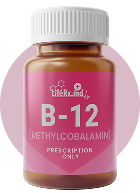Introduction:
People with diabetes often face greater challenges in losing weight compared to those without diabetes. This struggle extends to medications, including GLP-1 receptor agonists (GLP-1 RAs), where differences in effectiveness have been consistently observed between individuals with and without diabetes.
Effectiveness in Diabetes Patients:
Studies show that the mean weight loss difference between GLP-1 RAs and a placebo in patients with diabetes ranges from 4–6.2%. In contrast, individuals without diabetes experience a more significant weight loss, ranging from 6.1% up to an impressive 17.4%. This level of weight loss has not been replicated with other glucose-lowering interventions or lifestyle changes alone.
Clinical Significance of GLP-1 Medications:
Losing 15% or more of body weight is highlighted as clinically crucial, potentially having a disease-modifying effect in people with diabetes. Some experts suggest that anti-obesity pharmacotherapy, including GLP-1 RAs, should become a primary treatment goal for individuals with diabetes, especially in the early stages. Viewing a significant reduction in body weight as a target for treating type 2 diabetes is proposed as a paradigm shift.
Real-World Validation:
Recent real-world studies have reinforced the benefits of liraglutide, a GLP-1 RA, for obese patients with type 2 diabetes. The medication showcased positive effects on glycemic parameters and cardiometabolic risk factors, with greater efficacy observed in obese patients. This has particular relevance during the ongoing pandemic, as patients with diabetes and obesity are more vulnerable to severe forms of COVID-19 and related complications.
The GLP-1 Medication Journey:

In a comprehensive study involving 2405 patients, the average age was 48 years, with approximately 53% being female. The average BMI was 37 kg/m2, and the initial weight hovered around 238 pounds. The study revealed a progressive weight loss pattern over time after starting GLP-1-agonist medication. On average, participants lost 1.1% of body weight eight weeks into the treatment, with an increased loss of 2.2% at 72 weeks. At this point, one-third of the patients had achieved a weight loss of at least 5%.
Beyond Averages:
Digging deeper into the specifics, studies demonstrate that all GLP-1 drugs, including liraglutide, can lead to a weight loss ranging from 10.5 to 15.8 pounds (4.8 to 7.2 kg). This reinforces the overall effectiveness of GLP-1 medications in promoting weight loss.
Future Directions:
Encouraging further research, the authors advocate for personalized approaches to obesity pharmacotherapy. Exploring variations in weight loss based on sex, race, concomitant therapies, altered microbiota, and genetic background is essential. The goal is to identify patients who respond optimally to weight loss interventions, particularly those capable of losing at least 15% of their weight.
Conclusion:
The journey of GLP-1 medications in the realm of weight loss unveils promising outcomes, especially for individuals with diabetes. As we navigate these findings, the emphasis on personalized approaches and the potential of emerging therapies targeting GLP1 receptors paints a future where obesity management, particularly in individuals with diabetes, becomes more effective and nuanced. Proper prioritization of obese patients’ care is crucial, especially in the context of evolving global health challenges.




















